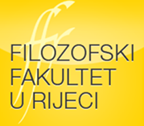Undergraduate psychology programme
About the programme
Undergraduate psychology programme is based on modern scientific facts and skills defined by them. The programme is characterized by a modern approach to teaching and the use of advanced teaching methods.
Comparability to international higher education programmes
In line with the recommendations of the Bologna Declaration regarding curriculum coordination, programme changes are implemented according to the norms set by the European Federation of Professional Psychologists’ Association (EFPA). The European Association of Psychologists in coordination with 12 eminent psychologists from 12 European countries (Denmark, United Kingdom, France, Finland, Greece, Italy, The Netherlands, Norway, Germany, Spain, Sweden and Switzerland) developed the “European Framework for Psychologists' Training” and proposed the criteria for obtaining the European Diploma in Psychology. This document proscribes the standards of education for psychologists in Europe, pointing out the minimum requirements for obtaining the European Diploma in Psychology. Meeting these standards ensures equal quality levels for psychological education in all of Europe.
The new undergraduate psychology programme at the Department of Psychology of the Faculty of Humanities and Social Sciences in Rijeka is designed in accordance with the defined standards, with the ultimate goal of equivalence of a diploma obtained at the Faculty of Humanities and Social Sciences in Rijeka with the European Diploma in Psychology. The standards for obtaining the European Diploma in Psychology, among other things, define the length of the programme to be five years, in two cycles (a three-year undergraduate and a two-year graduate programme).
Who can enrol?
The requirements for admission to the undergraduate psychology programme are a high school education, completion of the secondary school exit exam, and the admissions test.
The requirement for admission to the graduate psychology programme is a previously completed undergraduate psychology programme.
Structure of the programme
The undergraduate psychology programme is a three year programme (six semesters), and the student is required to obtain a minimum of 180 ECTS. The programme is completed by passing a final exam, for which the student acquires 2 ECTS.
The first three years of the programme are informative and represent the basic level in psychology education. They involve acquiring basic knowledge in general psychology and generic skills. This phase allows students to familiarize themselves with different areas of psychology as well as other similar scientific fields.
Academic title
By completing the undergraduate psychology programme a student acquires the title of baccalaureus (Bachelor) of social sciences in the field of psychology.
This degree is not sufficient for professional qualification and does not provide the necessary competencies for independent professional psychological work.
After completing the undergraduate psychology programme students acquire basic knowledge in the field of psychology which allow them to continue their studies in a graduate psychology programme or another graduate programme.
The knowledge, competencies and generic skills the students gain, allow them to work in the fields those skills and competencies are required for.
Competencies
Students acquire the following competencies after completing the undergraduate programme:
- basic knowledge about research methods in psychology, study designs, statistical analyses and measurement techniques,
- knowledge about general psychology, biological bases of psychological processes, cognitive psychology, developmental psychology, personality psychology and social psychology,
- general information about areas of applied of psychology.
In addition to acquiring basic knowledge, some specific as well as general skills are obtained:
- skills related to humanistic (e.g. critical thinking, writing essays) and natural sciences (testing hypotheses, statistical procedures),
- specific skills – planning research designs, methods and measurement, statistics – which are applicable in domains outside of psychology,
- general skills – communication skills, numeric skills, critical thinking, IT use – which are necessary for professional psychological work.












